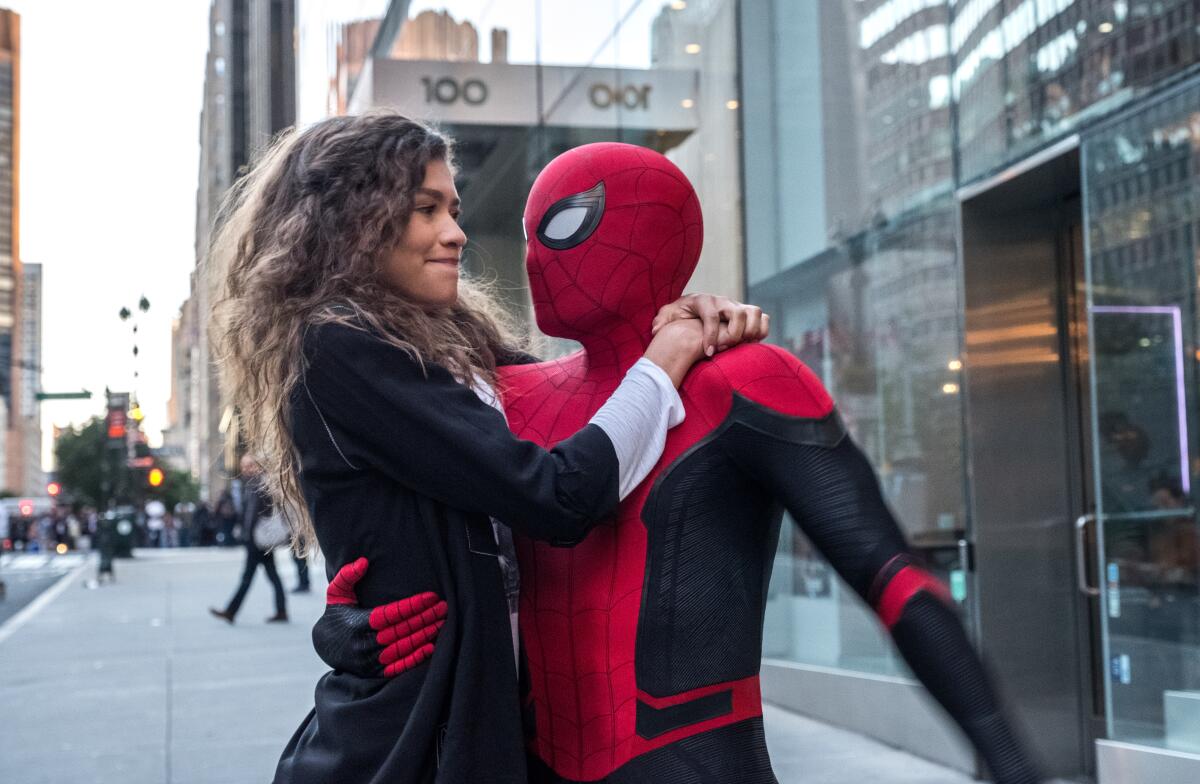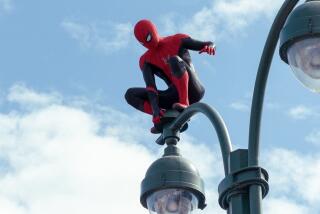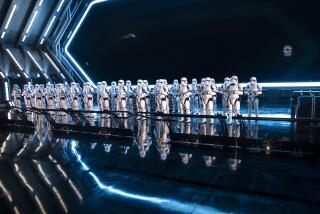Disney sues former Marvel artists over Iron Man and Spider-Man rights

Walt Disney Co. is taking legal action against former Marvel Comics writers and illustrators who are trying to claim rights to characters and stories they worked on decades ago, including Iron Man, Spider-Man and Daredevil.
Disney-owned Marvel on Friday sued several ex-Marvel comics artists in order to invalidate copyright termination notices they served against the entertainment giant. Marvel filed multiple complaints in federal court in New York and California.
The artists, all of whom are deceased except one, worked for Marvel in the 1950s, ’60s and ’70s. Their representatives served their termination notices earlier this year. The artists include Lawrence D. Lieber, 89, a writer Marvel hired in 1958 who wrote stories featuring the likes of Iron Man, Thor and Ant-Man.
Lieber is the younger brother of the late Stan Lee, whose work with Marvel provided the foundation of much of the publisher’s success and who was long one of the publisher’s most recognizable public faces. Lee died in 2018.
Inside the business of entertainment
The Wide Shot brings you news, analysis and insights on everything from streaming wars to production — and what it all means for the future.
You may occasionally receive promotional content from the Los Angeles Times.
Lieber is represented by entertainment industry attorney Marc Toberoff, who is also working with the estates of artists Steve Ditko, Don Heck, Don Rico and Gene Colan in similar claims over Marvel character rights.
Marvel, filing its lawsuits under the name Marvel Characters Inc., said in court documents that because Lieber and the others toiled as “work for hire,” they have no legal ownership rights to the characters they worked on. “[A]ny contributions Lieber made were at Marvel’s instance and expense, rendering his contributions work made for hire, to which the Copyright Act’s termination provisions do not apply,” Marvel said in one of its complaints.
When he got his start in the 1940s, Stan Lee was embarrassed by his profession.
Dan Petrocelli, the attorney representing Marvel in the case, reiterated the company’s argument in an emailed statement.
“Since these were works made for hire and thus owned by Marvel, we filed these lawsuits to confirm that the termination notices are invalid and of no legal effect,” Petrocelli said.
Burbank-based Disney is famously protective of its intellectual property, which is the cornerstone of its business strategy. The studio has created a remarkably successful run of films based on the comics franchise, including most recently “Shang-Chi and the Legend of the Ten Rings.” The characters are the springboard for merchandising, theme park attractions and an entire category of content on streaming service Disney+, where the studio has produced shows including “Loki” and “WandaVision.”
But even if the artists’ claims were successful, they would not impede Disney’s ability to exploit their ownership of Marvel characters through movies or other parts of its business, said people familiar with the case who were not authorized to comment. Instead, Marvel and Disney could have to compensate the artists for its uses of the characters.
The disputes echo a closely watched earlier case in which Toberoff represented the heirs of Jack Kirby, co-creator of many of the most famous Marvel heroes, in their fight for rights to comic book characters.
Four children of Kirby, known for his work on the X-Men, Fantastic Four, Thor and the Hulk, served dozens of termination notices to Marvel, Disney, Sony Pictures, 20th Century Fox, Paramount Pictures and Universal Pictures in 2009, the same year Disney acquired Marvel for $4 billion. Marvel sued in response.
The U.S. 2nd Circuit Court of Appeals upheld a lower court’s determination that Kirby’s contributions were work for hire and that his family could not claim ownership of the characters. Toberoff appealed the case to the U.S. Supreme Court, and the Kirby heirs settled with Marvel in 2014 before the case had a chance to get there.
Toberoff, in a statement, disagreed with both Disney’s current argument and the lower court’s decision in the Kirby case, in which he said “Marvel similarly sued Kirby’s family for exercising their rights under the Copyright Act.”
“Here, Marvel has done the same; but make no mistake, ‘artist-friendly’ Disney is calling the shots,” Toberoff said. “At the core of these cases is an anachronistic and highly criticized interpretation of ‘work-made-for-hire’ under the 1909 Copyright Act that needs to be rectified.”
More to Read
Inside the business of entertainment
The Wide Shot brings you news, analysis and insights on everything from streaming wars to production — and what it all means for the future.
You may occasionally receive promotional content from the Los Angeles Times.











